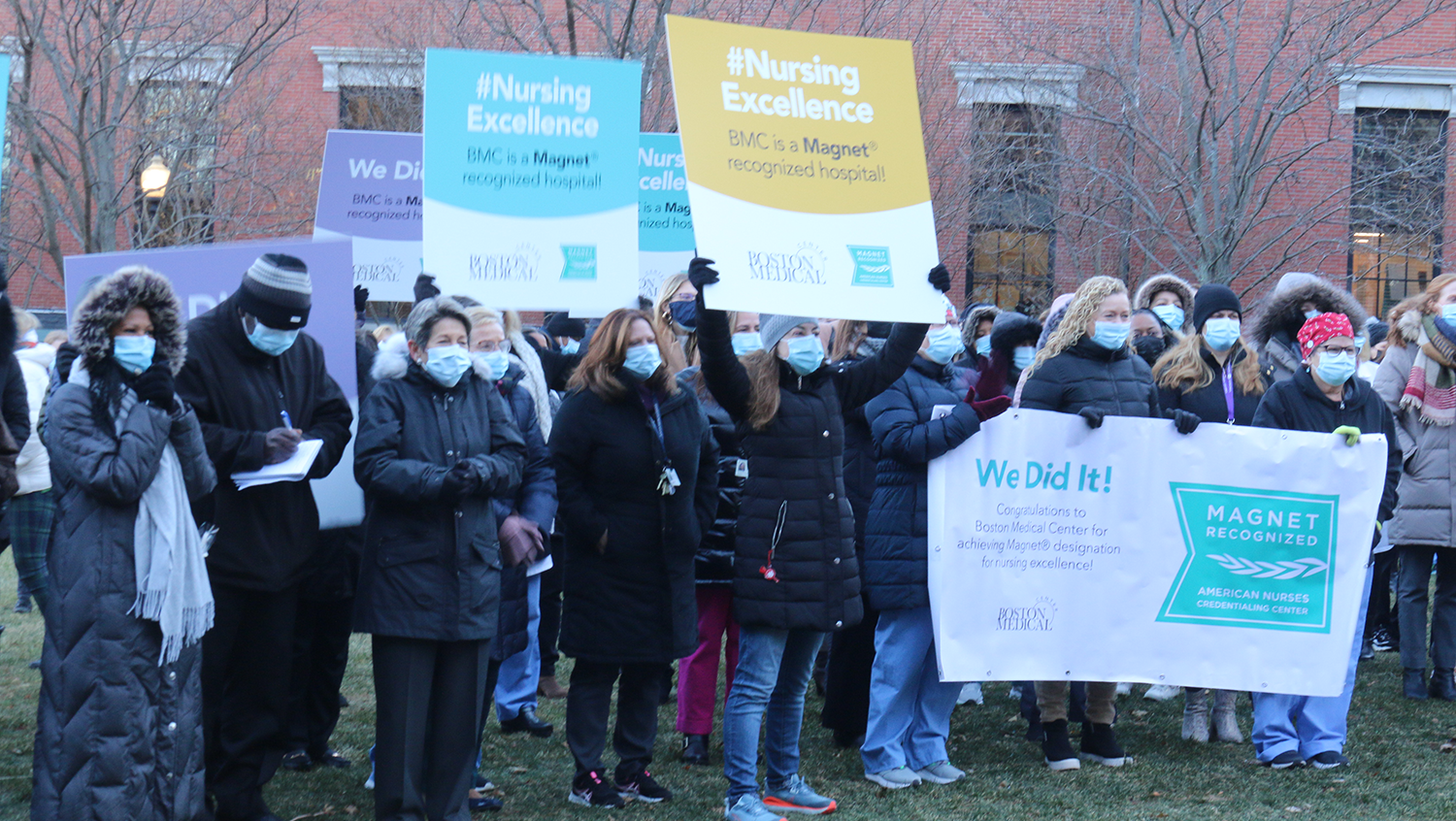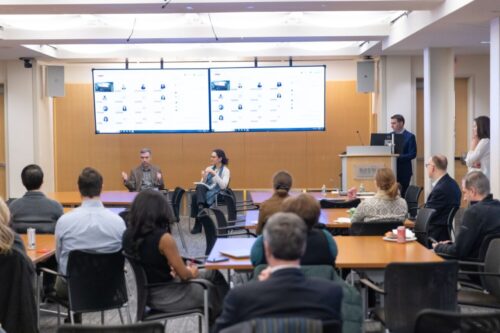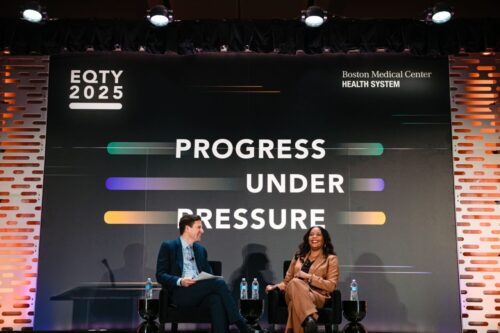
Boston Medical Center
The nursing department's commitment to BMC's mission of providing exceptional care without exception was a quality that set it apart, appraisers said.
In March 2020, Astride Barnard, MSN, RN, was caring for the first patient with COVID-19 admitted to Boston Medical Center’s Medical Intensive Care Unit (MICU). The patient was gravely ill, and Barnard was grief-stricken that the patient’s son could not visit because he also had COVID-19.
The patient’s family asked Barnard to arrange a FaceTime visit. Unsure if hospital policy or HIPAA rules would allow it, she was moved by compassion and empathy to grant the request. Using the patient’s phone, Barnard called the son and held the phone to the patient’s ear. Though the patient later succumbed to his illness, his family was able to offer final words of encouragement and love at his bedside.
Barnard shared the experience with the MICU staff, including the critical care nurse manager, Avital Rech, MSN, RN, CCRN. During an unprecedented time of restricted visitation, Barnard, Rech and their nursing colleagues believed video calls could be an essential tool to support family presence at the bedside of critically ill patients. They advocated to use newly donated iPads with the video conferencing app Zoom for this purpose. The idea took root, leading BMC to provide this service to countless patients during COVID-19 surges.
Magnet designation rewards years of nursing excellence
BMC’s policy change on visitation represents an agile healthcare organization that supports a nursing staff who are empowered to improve policies and care practices for patients at an organizational level. Going above and beyond to provide exceptional nursing care is one tenet of the Magnet Recognition Program—the nation’s most prestigious recognition of nursing excellence for healthcare organizations. Boston Medical Center was awarded the honor this past December by the American Nurses Credentialing Center. BMC will retain the title for four years before having to reapply.
The Magnet Recognition Program began as a recruitment and retention strategy based on research conducted by the American Academy of Nursing in the 1980s. Today, it offers a framework for nursing departments to excel operationally and maintain a high-performing workforce. Institutions who demonstrate outstanding patient outcomes based on their nursing practices can apply for the program’s eponymous designation. Only 9% of U.S. hospitals have achieved Magnet status, which requires a rigorous two-year application process.
“One of the most important things about the Magnet Recognition Program is it is absolutely the playbook for excellence in nursing care, whether or not you decided to apply for the designation,” emphasized Nancy Gaden, DNP, RN NEA-BC, senior vice president and chief nursing officer at BMC.
“It’s the foundational work behind the scenes—supporting good interprofessional relationships, ensuring nurses have a voice in their practice, making sure that there is support for orientation, good education, ongoing professional development, and inspiration around excellence in patient care. These tenets create a culture that produces the best patient outcomes.”
Gaden says years of preparation went into cultivating a robust professional practice environment for nurses and a culture of shared governance before applying to Magnet. Over the past decade, BMC’s Nursing Department has created hospital-wide nursing councils on clinical practice, integrative therapy, nursing informatics, and substance use disorder.
Individual nursing units also have councils to improve work environments and patient care, creating projects that have driven impactful change. For example, learning modules, where patients teach back information about their care, were developed to improve patient education in areas such as heart failure and fall prevention. Rolled out across the hospital, they have led to reduced hospital readmission rates and improve patient outcomes.
Improved health outcomes for vulnerable patients
Numerous studies have investigated the link between Magnet environments and improved patient outcomes, finding lower mortality rates, lower fall rates, and higher satisfaction among patients at Magnet-designated hospitals.
“It is known that nursing care is better in a hospital that has attained Magnet designation, and that’s because it’s an evidence-based framework. You have to show real data. You have to outperform the mean in the critical nurse-sensitive metrics,” explains Gaden.
Beyond meeting criteria for designation, Magnet appraisers identified eight exemplars where BMC outperformed the national benchmark standards. Unit-level data for patient engagement, patient-centered care, and patient education, for example, were all above target. Unit-level data on safety outperformed the national benchmark on 100% of the hospital’s units.
As a safety-net hospital, BMC practices specialized nursing that considers the social impacts of poverty on health and embraces unique initiatives focused on community outreach. Gaden points to the example of BMC’s mobile pediatric unit, a nurse-supported initiative created to provide MMR and other childhood vaccines to the hospital’s pediatric patients during the COVID-19 pandemic.
BMC’s Pediatric Nursing leadership team had to cut through red tape amid a pandemic, engage state and city stakeholders, and coordinate with the Massachusetts Department of Public Health to order vaccines and ensure their safety on the road. The initiative improved vaccination rates from 9% in March 2020 to 50% in May of 2020.
Gaden believes the Magnet designation is especially important for an institution whose mission is to provide “exceptional care, without exception,” because it signals that all patients deserve the best care. Magnet appraisers noted that BMC’s commitment to its mission was a quality that set it apart.
“The nurses here have always provided exemplary care. They really have,” says Gaden. “I’m so proud of the opportunity to showcase their work with the Magnet designation. It’s like the official stamp to represent the excellent care and professional achievements they were already pursuing.”


